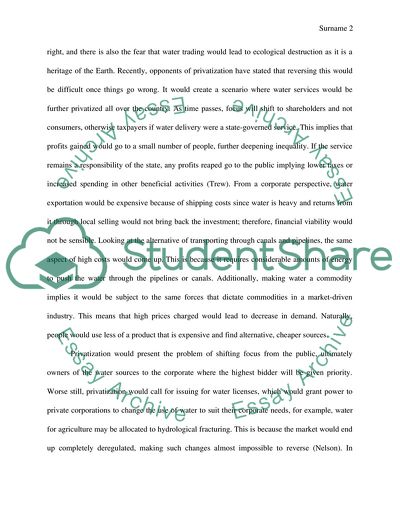Cite this document
(Why the Canadian Government should not Provide Privatization of Water Essay, n.d.)
Why the Canadian Government should not Provide Privatization of Water Essay. Retrieved from https://studentshare.org/law/1620045-should-canadian-goverment-provide-privatization-of-water
Why the Canadian Government should not Provide Privatization of Water Essay. Retrieved from https://studentshare.org/law/1620045-should-canadian-goverment-provide-privatization-of-water
(Why the Canadian Government Should Not Provide Privatization of Water Essay)
Why the Canadian Government Should Not Provide Privatization of Water Essay. https://studentshare.org/law/1620045-should-canadian-goverment-provide-privatization-of-water.
Why the Canadian Government Should Not Provide Privatization of Water Essay. https://studentshare.org/law/1620045-should-canadian-goverment-provide-privatization-of-water.
“Why the Canadian Government Should Not Provide Privatization of Water Essay”, n.d. https://studentshare.org/law/1620045-should-canadian-goverment-provide-privatization-of-water.


